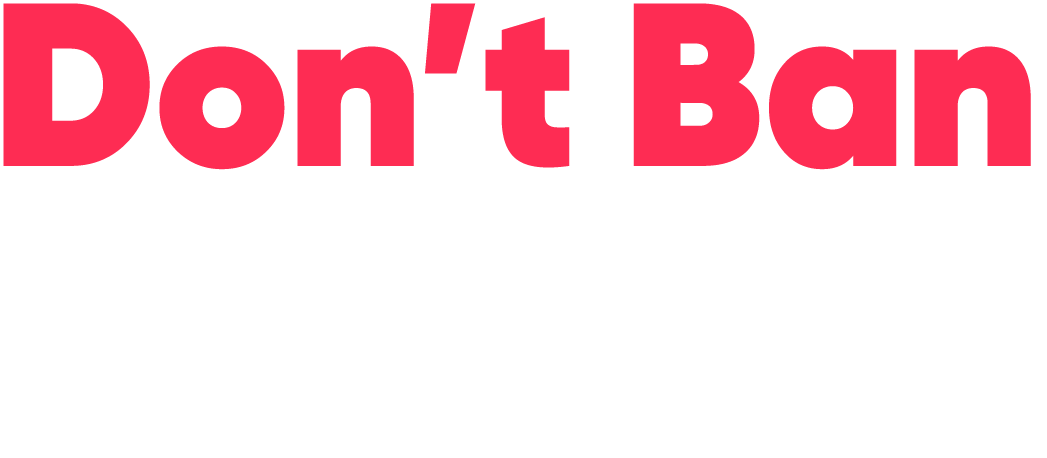
Take Action
Sign on to the Don’t Ban Equality Statement
Calls to Action
Please consider these recommendations for businesses who wish to take action internally.
We understand that this advice may not serve all companies but the following has been compiled from best practices of companies that are going above and beyond in the work to preserve access to care for their workers.
-
of restrictions by ensuring company benefits support the full spectrum of workers (even those considered part-time or hourly) and their reproductive health care needs, centering those who will face the greatest barriers to accessing care.
-
Understand and engage on reproductive health public policy at the state and federal level. Communicate to lawmakers that public policies that limit access to reproductive health care threaten the health and wellbeing of their workers, negatively impact the talent pool, make it more difficult to recruit workers from out of state, and alienate consumers.
-
Align political giving with workforce, equity, and ESG commitments. If companies cannot discontinue giving, they should lean into their influence to promote a shared policy agenda that brings additional considerations rather than enacting unpopular and unnecessary policies.
We recommend this additional guidance BSR provides on seven actions for business in 2024 post-Roe America that companies can take to provide reproductive health access for their workers while meeting growing stakeholder expectations amidst legal and political challenges. In includes:
-
Do not authorize corporate matching or workplace giving for anti-abortion organizations that infringe on reproductive health access. Consider criteria for organizations that receive corporate donations, including passive tools such as matching and payroll deduction.
-
Some corporate travel planners and HR leaders are quietly working to address a growing set of risks to employees. Companies are enacting travel policies that restrict or are acknowledging the risks of hosting events in places where abortion is illegal or inaccessible. Increased restrictions are prompting new questions relevant to site selection, including access to care and treatment for workers facing urgent health crises, let alone new threats of invasive law enforcement action.
-
The collection of user data by companies and tracking of users’ online activity about reproductive health creates significant risks to seekers and providers of healthcare services and unnecessary reputational risk for employers. Among the key actions companies can take include:
Undertake human rights due diligence to identify risks to sexual and reproductive health that may be associated with the development or use of new or existing platforms, devices, products / product features. Companies need to consider state restrictions on reproductive health when deciding on the location of offices, data centers, or other assets that might give a state jurisdiction over the user data.
Apply best practice privacy principles, such as data minimization, purpose limitations, purpose-based data retention, and user transparency and control.
Deploy end-to-end encryption on private messaging services.
Set default privacy settings to the highest level of privacy protection. Privacy protections should be based on an opt-out model, not an opt-in model.
-
A touchstone of American Democracy is safe and fair elections as well as robust engagement by all communities nationwide.
Provide paid time off to vote even if it is not required in all states where the company operates. Workers shouldn’t have to choose between earning a paycheck and voting.
Recruit and recognize employees serving as poll workers and poll monitors as part of workplace volunteerism. This is fundamental to how democracy functions in America.
Engage with officeholders to express support for elections through investment and reform to meet administrative challenges.
The fall of Roe added to an already tumultuous landscape, leaving employers to navigate an increasingly complex patchwork of new and proposed restrictions. The costs of insufficient action become more tangible while the impact of this ongoing public health crisis accelerates.

